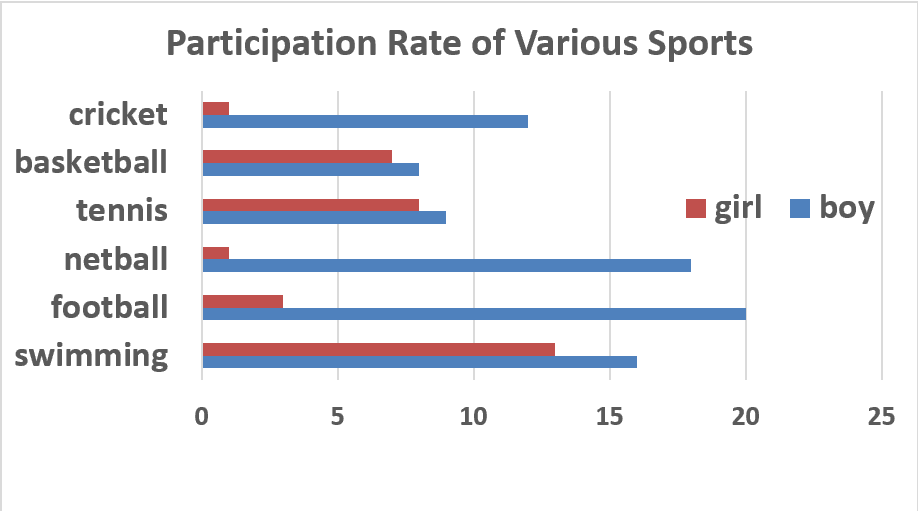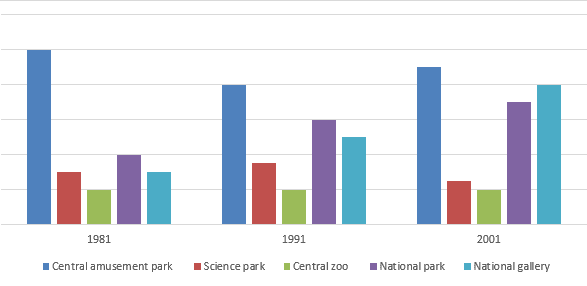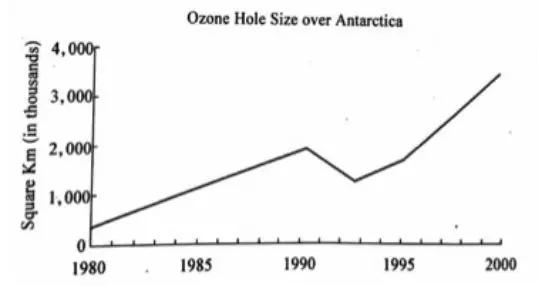在GRE作文的评分标准中,文章观点可以说是最为重要的一环。无论是ISSUE立论文还是ARGUMENT驳论文,对于考生的论点提炼和展开的能力都有很高要求。下面小编就和大家分享GRE写作议论文提炼观点,来欣赏一下吧。
GRE写作议论文提炼观点
GRE写作提炼观点应避免两个问题
GRE写作在论点上出问题的情况其实非常常见,其中最主要的情况有两种,一种是论点过于宽泛,另外一种则是论点过于狭窄。对于缺乏议论文写作经验的考生来说,无论出现那种错误都需要引起警惕,否则作文成绩很难有所提升。
1. 观点要有具体内容不能空泛
在各类教导写作的材料中,大家应该时常会发现关于强调GRE写作论点一定要写得具体,越细越好的指导建议。而考生经常出现的问题就是会出现一些很宽泛的论点句,以至于在较短的篇幅里并不能充分展开,甚至有时候会造成观点重叠。
比如去年2月份的GRE考试中有一篇作文,题目要求探讨关于移动电话对于现代人生活的影响。假如考生提炼出的观点是“Mobile phones have changed our life greatly. ”这句只是说手机很大程度上改变了人们的生活,但是并未点明从哪些方面上带来了改变,因此把这个观点具化一下:“Mobile phones can serve as a connection to the Internet, which can be extremely convenient for obtaining information wherever you may be.”这样一来大家既有具体内容可写,也可以避免观点过于宽泛大而无当的情况。
而同样是在去年2月份,还有一篇作文的题目则讨论了关于广告泛滥对于社会舆论造成的干扰。如果考生只是简单写“Advertising has bad effects on all of society. ”广告有不良影响显然是不够的。我们需要写出具体的方面,比如“Advertisements which exaggerate the function of the products may mislead the consumers.”这样具体的观点才是GRE考官真正希望看到的内容,言之有物也需要从实际出发。
2. 观点要有展开空间不能自缚手脚
与论点过于宽泛相对的,则是一些考生把论点定得太过狭窄,自己把自己逼近了死胡同以至于没有展开的空间甚至没有进一步支持的必要。这类句子与其说是观点,倒不如说是事实的陈述或者只是举了个例子而已。
去年4月GRE作文中曾出现过这样一道题目,讲的是某个地方当地人开展旅游业的看法。有的考生直接把观点写成“There are more local residents engaged in tourism industry. ”这其实并非观点,只是陈述了一个事实就是在当地越来越多人开始从事旅游业,可改为:“Tourism brings huge economic benefits to local residents.”就比较容易展开了。
而今年1月份的GRE作文中也有一道讨论不可再生燃料如何持续利用的题目,如果考生写出“The consumption of fossil fuels increase in recent years. ”这样一句看似结论的话既缺乏数据支持也毫无说服力可言,等于是自己把话说死了,后续要怎么展开?正确写法是给出论述重点,假设原因,比如“The consumption of fossil fuels increasing in recent years results from two factors.”之后就会好写很多。
综上所述,GRE写作中因为观点论点错误所导致的扣分其实是很严重的问题,不仅会对大家的得分造成影响,本身也不利于考生写作思路的拓展和文章的进一步展开。小编希望大家在重视训练写作技巧的同时,也能够对如何树立和提炼文章观点做一些练习,避免在考试中出现观点方面的问题和错误。
GRE写作高分范文:生动剖析写作
GRE写作题目:
Too much time, money, and energy are spent developing new and more elaborate technology. Society should instead focus on maximizing the use of existing technology for the immediate benefit of its citizens.
GRE写作范文:
I must say that I reject this statement. While it is true that we need to support society as much as possible with current technology, that does not in any way mean that we should stop progressing simply because our current technology cannot handle all the problems we have brought to it. Does that mean that we should simply accept the status quo and make do? No, I don’t think so. To do so would be tantamount to adopting a fatalistic approach; I think most people would reject that.
Technology has helped, and it has hurt. Without it, we would never have our standard of living, nor quality of nutrition, expectation of a long and productive life span, and the unshakable belief that our lives can be made even better. But it has also brought us universal pollution, weapons so powerful as to be capable of rendering us extinct, and the consequent fear for our survival as species and as a planet. Technology is indeed a double-edged sword. And yet, I still have to argue in its favor, because without it, we have no hope.
Some might argue that we would be better off without technology. They might say that a return to a less technologically driven approach to life would have the benefits of reducing stress and allowing us to live simpler, happier lives, like those of our forebears. Such an idea is seductive, so much so that much of art and all of nostalgia are devoted to it. But upon closer inspection, one realizes that such a move would only return us to a life of different kinds of stress, one of false simplicity, one fraught with danger. It would be a life without antibiotics where a minor cut could prove deadly. It would be a life where childbirth is the main killer of women, and where an emergency is dealt with in terms of hours and days instead of minutes and hours; a life where there are no phones or cars or planes or central heating, no proven drug therapies to treat mental illness, no computers. Would this world really make people happy?
What we already have, we have. And since the only way to move is forward, instead of allowing ourselves to be paralyzed by fear and worry, we need to learn how to clean up the pollution we have caused, and how to deal with a world that feeds on weapons and mass destruction. Doing these things means having to move away from technology into a more difficult realm, that of diplomacy and compromise: to move from the bully stance of “I am bigger and better and I have more toys and so I win” to a place where everyone wins.
Technology is the thing that will allow people to do that. But, advanced as it is, it is still in its infancy. We have to allow it to grow up and mature in order to reap the real rewards that it can bring. And there are even greater rewards ahead of us than what the world has already experienced. When technology is pushed to the outer edge, that is where serendipitous discoveries can occur. This has been seen throughout technological advancement, but the easiest example is probably the space program which made us think, really hard, about how to do things in a different environment. It gave us telecommunications, new fabrics and international cooperation. Paramedical devices, so that people can be treated even as they are being transported to the hosptal, are a direct development of that technology. None of this would have happened in the time frame that it did if we had not pushed for technological advancement. If we had decided to “focus on maximizing the use of existing technology” instead of foolishly reaching for the stars, we would not have made those discoveries which now are the bedrock of the 21st century.
GRE写作分析:
字数:651
语言:平实的语句完全没有网络流行模板的痕迹,也是许多过了6级的考生通过练习可以达到的水平。
I must say that I reject this statement.
Does that mean that we should simply accept the status quo and make do? No, I don’t think so.
Technology has helped, and it has hurt.
Technology is indeed a double-edged sword. And yet, I still have to argue in its favor, because without it, we have no hope.
GRE写作高分范文:避免偏激
题目:
Most people often look for similarities, even between very different things, and even when it it is unhelpful or harmful to do so. Instead, a thing should be considered on its own terms: we should avoid the tendency to compare it to something else.
人们总是在寻找相同点,即使是在非常不同的事物间也不例外,甚至有时候这样做是无用乃至有害的。实际上,我们应该具体问题具体分析;我们应该尽量避免比较的倾向。
正文:
In the age of accelerating changes, the eagerness to understand things in an effective and equally efficient way is more than ever. Although all kinds of complex techniques, skills and equipments helpful for understanding and studying the objects are easily accessible to people, the basic strategies stay the same as before: one is starting from similarities and the other from distinction. From my personal point of view, only by using the two in proper proportion and order can one achieve his/her goal to understand a thing.
Looking for similarities is a proper starting point. When we first meet something new,we need to clarify its basic attributes, finding similarites with other familiar things and classify it according to those attributes. Classification according to similaties is of great assistance to provide us with an outline, basic knowledge which we can base further investigation upon. Although things in contemporary age represent themselves in various forms and styles, similarities exist in any pair as long as certain perspective can be found. For instance, Bookcase and window are so different that at first glance, one may not be able to find the similarities, or even such an effort seems to be meaningless. Yet, they are both part of a house, something that must be taken into consideration when decorating or refurnishing the house. Such a comparison would be helpful for us to realize that “buy” and “sell” are two basic operation we can have upon window even though we have no idea what window is made of, how it is produced or what its function is.What’s more, looking for
similarities not only refer to the object itself, but the relationship with others. Similar relationships helps people understand things in groups or pairs using the strategy: analogy. Analogy is especially useful when the charactertistics of a relationship rather than the objects themselves are the focus of understanding and when similar relationships are known and objects unknown. For example, if told that the relationship between window and ASVE is similar to that between book and read, one can safely guess that ASVE is the operation people can take on window although ASVE stays an unknown action.
Definitely, mere similarity usually exclude the distinctive characteristics of a thing. We need to investigate its own terms for deeper understanding. Within the rough outline sketched by similarity, a more detailed and well-articulated picture can be drawn by grasping own terms of a thing. Still take window as an example. From careful observation, we know that it is transparent, it consists of different chemical materials, it performs the function as to protect privacy, to preserve desirable temperature indoor, and sometimes to prevent rains and snows from going inside. Deeper and further understanding of window can only be gained when we take its own terms besides those it shares with bookcase into consideration.
GRE写作相关文章:
★ GRE写作:高分技巧
★ GRE写作:高分冲刺
★ GRE写作:怎样准备提纲
★ GRE写作:写作论据的技巧
★ GRE背单词记不住怎么办
★ 学习资料库
★ 组织主题夏令营活动策划方案2020
★ 《金字塔原理》观后感精选范文1000字
★ 夏令营特色活动策划方案
★ 夏令营实践主题活动策划方案范文
上一篇:GRE写作词汇语法要点解读
下一篇:GRE写作常见易错扣分用词情况




